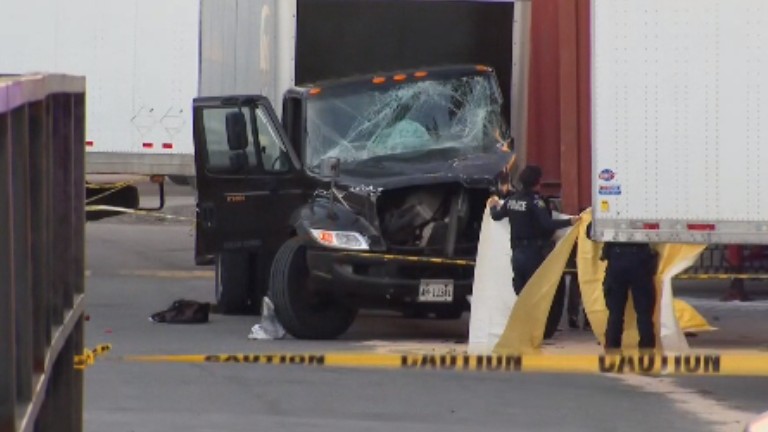Canada helped set stage for current political crisis in Haiti: expert
Posted July 18, 2021 8:57 pm.
Last Updated December 22, 2021 1:55 pm.
A legacy of foreign intervention in Haiti has set the stage for the current political crisis, according to an assistant professor of Caribbean Studies at the University of Toronto.
Two prime ministers have staked competing claims to take charge, following the assassination of the country’s President Jovenel Moïse in early July.
Interim Prime Minister Claude Joseph has declared himself Haiti’s acting leader. But over the weekend, a group of international diplomats, including from Canada, signalled their support for Haiti’s new prime minister, neurosurgeon Ariel Henry, appointed by Moïse in one of his last acts, but never sworn in.
The Core Group, made up of ambassadors to Haiti from Canada, Germany, Brazil, Spain, the United States, France and the European Union, as well as representatives from the United Nations and the Organization of American States, called for the creation of “a consensual and inclusive government.”
“To this end, [it] strongly encourages the Prime Minister-designate Ariel Henry to continue the mission entrusted to him to form such a government,” the statement reads.
“The Core Group needs to stay out of Haiti, period, because they have not helped,” Kevin Edmonds told CityNews.
He said the international community has largely financed and legitimized elections fraught with allegations of fraud since the 2004 military coup that overthrew the democratically elected government of President Jean-Bertrand Aristide.
The Haitian electorate, Edmonds explained, is deeply mistrustful as a result, leading to low voter turnout and anti-government protests, “because [people] don’t see that there is a legitimate way to participate in Haitian politics.”
After the 2010 earthquake, president Michel Martelli was elected after Edmonds said several political parties were excluded from the ballot and the vast majority of voters stayed home.
“That’s an issue. It shows that people have tuned out of the political process because they don’t see it as a valid way to express their will or their demands.”
Canada intervened militarily in Haiti in 2004. According to Veterans Affairs Canada more than 750 Canadian Armed Forces members and 100 Canadian civilian police officers have served in Haiti.
U.N. troops patrolled Haiti for 13 years before their stabilization mission ended in 2017 amid allegations of sexual abuse and causing a cholera epidemic.
In the months before his death, Moïse, who was Martelli’s handpicked successor, had been ruling by decree after failing to hold elections. He was killed one day after nominating Henry as the new prime minister.
A spokesperson for Global Affairs told CityNews Canada has been engaging directly with the two prime ministers and other actors, “to ensure peace and stability and encourage an inclusive dialogue with all political parties and all sectors of society.”
“Canada has a deep and long-standing commitment to Haiti, and we want to continue to strengthen our efforts to improve the lives of the Haitian people,” said the statement.
But Edmonds said Canada needs to stop undermining democracy in Haiti, and give Haitians a chance to decide their own fate and own the outcome.
“We keep talking about democracy, democracy, democracy, let’s let it happen in the country.”










